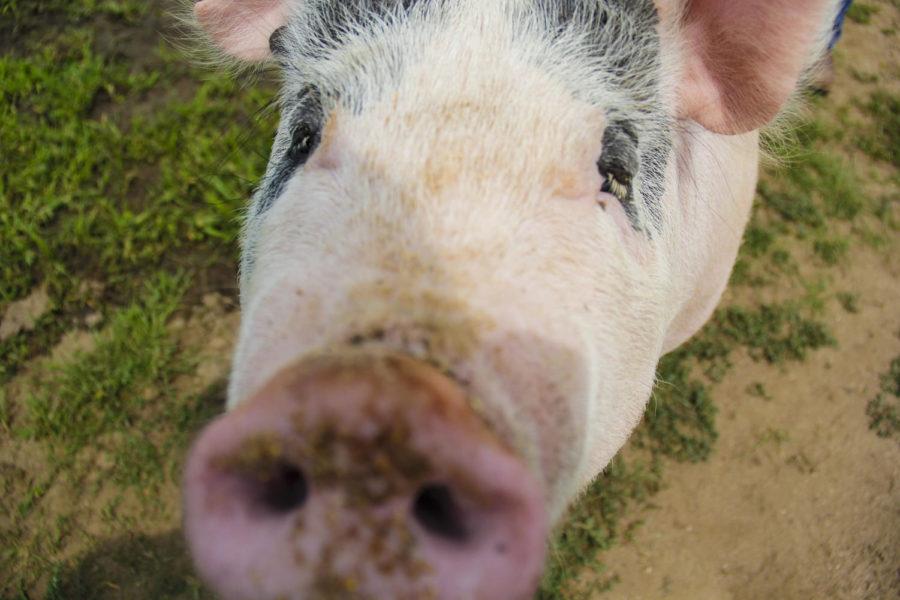The impact on Iowa of China’s proposed tariff on pork
Kelby Wingert/Iowa State Daily
Katlyn Kahler
March 26, 2018
China announced tariffs on $3 billion of U.S. products on Friday in response to President Donald Trump’s planned tariffs on $60 billion of Chinese produced goods.
There are 128 items on China’s proposed tariffs list including wine, steel and fruit. But most importantly for Iowa, pork is also on the list.
Iowa is the number one pork producing state in the country. If these tariffs come into place, not only would agricultural trade decrease as a whole, but pork prices could also fall.
“Any tariff placed on there would slow that trade flow down, and that’s going to lead to lower prices for U.S and Iowa pork. That’s an issue especially when farmers have been struggling with low to no returns over the past few years,” said Chad Hart, associate professor of economics, crop markets specialist, and extension economist.
China is the second largest market for United State’s agricultural exports. On an average year, around $20 billion of agricultural trade is done with China.
“China is our second biggest pork market, so it’s a big deal,” said Dermot J. Hayes, Charles F. Curtiss distinguished professor in agriculture and life science and pioneer chair in agribusiness.
Another issue the potential tariffs raise is that some of the pork China purchases, like the intestines, the head and the tails, are not as desired as much in the United States as they are there.
“The products the Chinese buy from us are not in big demand over here … so if we don’t sell them then it’s a waste of protein,” Hays said.
But if the tariffs are enacted, the more specific markets, like pork hides, could be impacted the most.
“If China does put some trade barriers in place, that’s where we are going to see some of the bigger hits, is in those more specialized markets for pork,” Hart said.
However, the biggest export to China from the United States is soybeans, which represents over half of our agricultural trade with them.
“The biggest production is actually soybeans by far … but pork is fairly high up on that list as well,” Hart said.
Although the trade negotiations are being done in Washington D.C. and Beijing, the tariffs will have a direct impact on farmers in Iowa if passed.
“When you are thinking about that connection for Iowa, through soybeans and through pork, it’s hard to overemphasize the importance of China when it comes to agricultural trade,” Hart said.
In the past, the United States and China have had a profitable relationship regarding agricultural trade.
“In agriculture I think there’s a very positive relationship,” Hayes said. “I think we know we benefit from their demand, and they would like to see us as a reliable and high value supplier of products they desperately need.”
Although the tariffs will have a significant impact on agriculture all over the country, not just Iowa, the tensions that have caused the tariffs between the two countries are not specifically centered around the issue of agriculture.
“The issues between the U.S. and China are not at all related to agriculture,” Hays said. “It’s unfortunate to see this spill over into what has been a prosperous relationship to both sides.”







